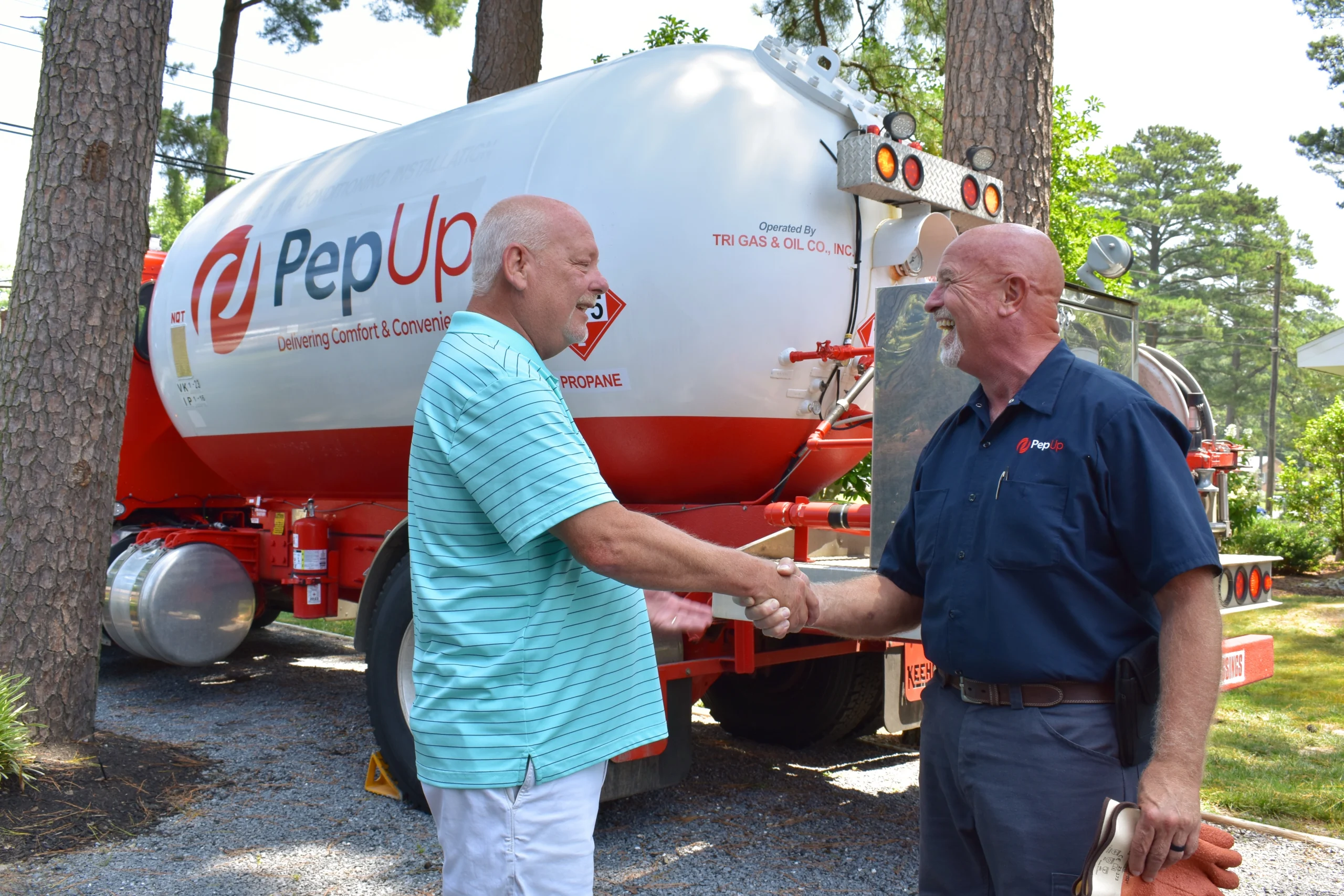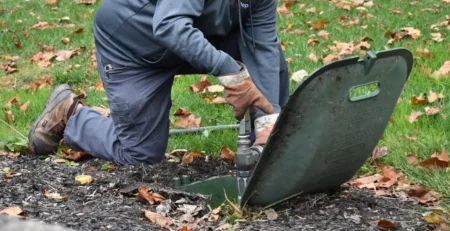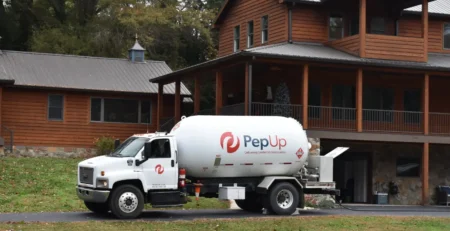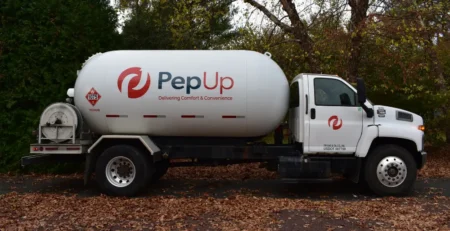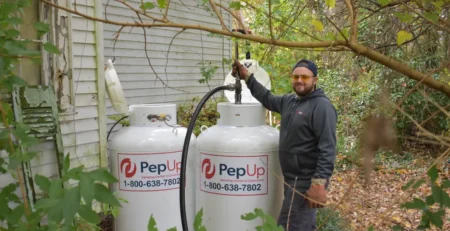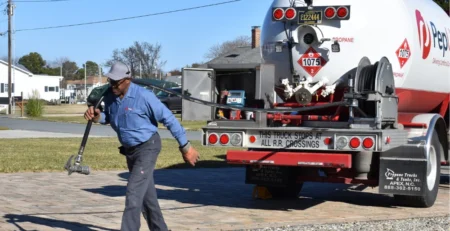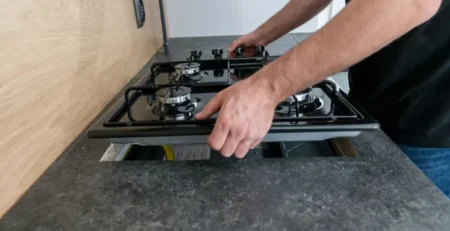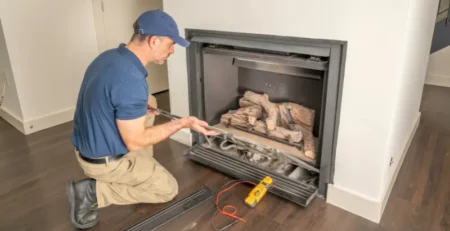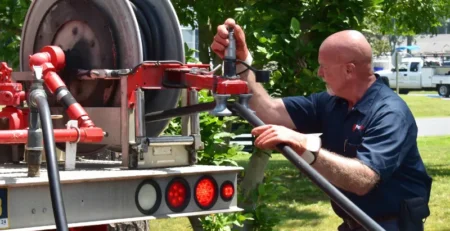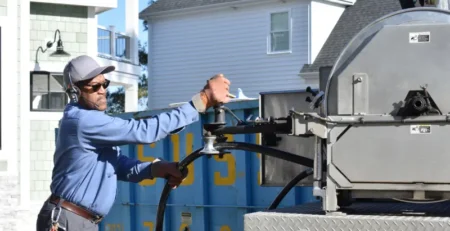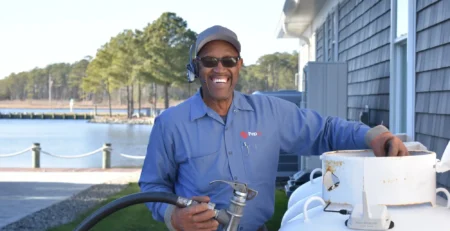Why Our Customers Love Rinnai® Tankless Water Heaters
Ask any PepUp customer how they like their propane-powered Rinnai® tankless water heater, and you’ll get an earful. If you’re considering making the switch to a propane hot water heater, but haven’t yet decided whether you’ll choose a traditional model or a tankless, on-demand model, let’s walk through the benefits of going tankless.
PepUp sells and installs Rinnai® tankless propane water heaters, so we’ll focus on this brand we’ve come to know and trust with our customers’ hot water needs.
First Things First: How a Propane Tankless Water Heater Works
A tankless propane water heater, also known as an on-demand water heater, uses propane gas as a fuel source to heat water directly without the need for a storage tank. When a hot water tap is turned on, cold water travels through a pipe into the unit, and a propane burner heats the water. This process ensures that a constant supply of hot water is available without the standby energy losses associated with storage water heaters.
Next Up: Options for Installation
Indoor Installation
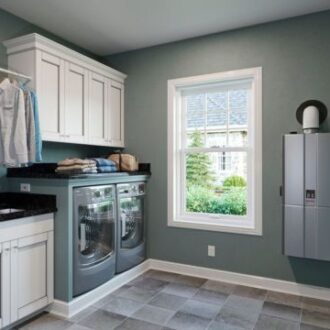
For safe indoor installation, ensure that the unit is placed in a well-ventilated area to facilitate the safe expulsion of exhaust gases through proper venting—a crucial aspect to prevent carbon monoxide buildup. Pay attention to local building codes, maintain clearance requirements, and make sure you have a carbon monoxide detector near the unit for safety.
Indoor installation requires very little space, unlike a traditional tank water heater. Rinnai® tankless water heaters are sized to attach to wall studs with typical 16-inch wall stud spacing. The best location may be your old water heater location, a laundry or utility room, attic, or basement. Depending on the size of the water heater you choose, units max out at 12 inches deep, 31.3 inches tall, and 18.5 inches wide. You’ll need to keep the area within a foot of the unit clear of any clutter, flammables, or combustible materials for safe operation and easy access.
Outdoor Installation
Outdoor installations eliminate the need for venting and are also a great option. You’ll need to make sure the unit is designed for exterior use and protected from extreme weather conditions. Never underestimate the chilling effects of a strong north wind! An optional mounting box provides some weather protection. Insulate the bit of water inlet pipe and/or drain the unit if you’ll be away during freezing weather.
The good news is that Rinnai®’s latest models have built-in freeze protection, and the company has some tips to help customers choose a location best suited for cold-weather protection.
“Rinnai® tankless water heaters feature freeze protection for outside temperatures as cold as -22° F (-30° C) for indoor models or as cold as -4° F (-20° C) for outdoor models when protected from direct wind exposure and as long as the appliance has both power and gas supply.”
Source: Rinnai® residential FAQs
Now that you have all the background information you need to better understand the logistics of tankless propane water heater selection and installation location, we’ll share some of the most-talked-about benefits our customers share.
Benefits of a Rinnai® Tankless Propane Water Heater
- Energy Efficiency: Tankless propane water heaters are more energy-efficient than traditional tank heaters as they only heat water on demand, reducing standby energy losses. The models we furnish customers at PepUp are 96 percent efficient and ENERGY STAR® qualified.
- Cost Savings: Due to higher energy efficiency, these heaters can lead to lower utility bills over time. They only use electricity to power the thermostat, which is necessary for operation. Worried about losing power? Check out the Hugo X-1 Battery Backup from Rinnai®, which can power your water heater and provide a power source for small electronics for several days, if needed.
- Unlimited Hot Water: The right size tankless water heater for your home and family can provide a continuous supply of hot water, unlike tank heaters that can run out and have to heat a large amount of cold water to recharge. What’s even better is that on-demand water heaters can provide hot water to multiple sources simultaneously – no more cold showers when someone is running the dishwasher or washing machine. Your Rinnai® water heater can handle it!
- Space Saving: Tankless models are compact and can be wall-mounted, freeing up floor space in your home.
- Longevity: Tankless water heaters typically have twice the lifespan of tank models, often lasting over 20 years with proper maintenance. The company also offers a 12-year limited warranty on the heat exchanger, for even more peace of mind that your investment is protected.
- Reduced Risk of Leaks: Without a storage tank, the risk of water damage to your home due to a tank leak is one less thing you have to worry about.
- Fresher Water: Water heated on demand is fresher, avoiding potential rust and scale that can accumulate in a tank.
- Environmentally Friendly: Propane burns cleaner than other fossil fuels, leading to lower emissions, and tankless heaters further reduce environmental impact through higher efficiency.
- Precise Temperature Control: These heaters often include digital controls that allow for precise adjustments to the water temperature. New models also feature wireless operation and app connectivity. You can use your phone to check on the status of your water heater and adjust the temperature with just a few clicks.
- Improved Home Value: The modern, efficient nature of tankless water heaters can be a selling point, potentially increasing home value.
Choosing the Right Size Rinnai® Tankless Water Heater for Your Home
Propane tankless water heaters are generally sized based on their flow rate, which is measured in gallons per minute (GPM). The flow rate indicates the volume of hot water the heater can provide at any given time. Here are some typical size ranges and what they mean:
- Small (4-6 GPM): Suitable for one or two simultaneous uses, such as running a shower and a sink. Ideal for smaller homes or apartments with lower demand for hot water.
- Medium (7-9 GPM): Designed to handle several uses at once, such as multiple showers or a combination of appliances. Fits the needs of an average-sized household.
- Large (9+ GPM): Capable of meeting high hot water needs, supporting multiple showers, sinks, and high-demand applications simultaneously. Best for larger homes or those with high hot water consumption.
The right size for a household depends on the peak demand—how much hot water is needed at times of highest usage. To determine this, add up the flow rate of all appliances and fixtures that might be used at the same time and choose a tankless heater with a GPM rating that matches or exceeds that number. It’s also important to consider whether the climate could affect the inbound water temperature, as heaters might need to work harder when it’s cold outside, potentially reducing the effective GPM.
Let’s Explore Your Hot Water Options
If you still have questions or need help selecting the right Rinnai® water heater for your home, reach out to your regional PepUp office or one of our knowledgeable Energy Specialists. With a quick phone call and a few questions about your home, family, and appliances, we’ll recommend next steps so you, too, can enjoy unlimited hot water! (You can keep that bit of information to yourself if you have teenagers.)
Frequently Asked Questions (FAQs) About Rinnai® Propane Tankless Water Heaters
Yes, a tankless propane water heater requires electricity to operate its electronic ignition and control systems. They typically use a minimal amount of power.
These systems can be installed to run on a backup generator, so talk to your installation technician if you have a generator set up, or would like to be able to connect your tankless water heater to a generator during an extended power outage.
A Rinnai tankless water heater uses about 0.02 to 0.2 gallons of propane per hour of operation, depending on the model and water usage demand. Precise consumption will vary based on your household’s needs.
Yes, many Rinnai models are designed for outdoor installation, making them a versatile option for homeowners in our area. Many PepUp customers opt for indoor installation due to our high humidity and sea air. This helps prolong the life of your water heater by reducing rust and corrosion.
No, Rinnai tankless water heaters do not have a pilot light. Instead, they use an electronic ignition system that ignites the burner only when hot water is needed, enhancing safety and energy efficiency.
Yes, it’s recommended to flush your tankless water heater at least once a year to remove mineral buildup and ensure efficient operation. This maintenance helps prevent long-term issues and prolongs the unit’s lifespan. Watch this video from Rinnai to get step-by-step instructions on flushing and some additional tips about maintaining your water heater.
The size needed depends on your household’s peak demand for hot water. Rinnai offers various models suited for different capacities, and our experts at PepUp can help you determine the best fit based on the number of fixtures in your home and your family’s size and usage patterns.
Yes, both Delaware and Maryland may offer rebates and incentives for installing propane tankless water heaters. Check local utility programs and federal tax credits for energy-efficient upgrades for detailed information. Here’s a list of current Delaware rebate offers for efficient appliance upgrades, and here’s where you’ll start looking for Maryland energy efficiency appliance rebate offers.
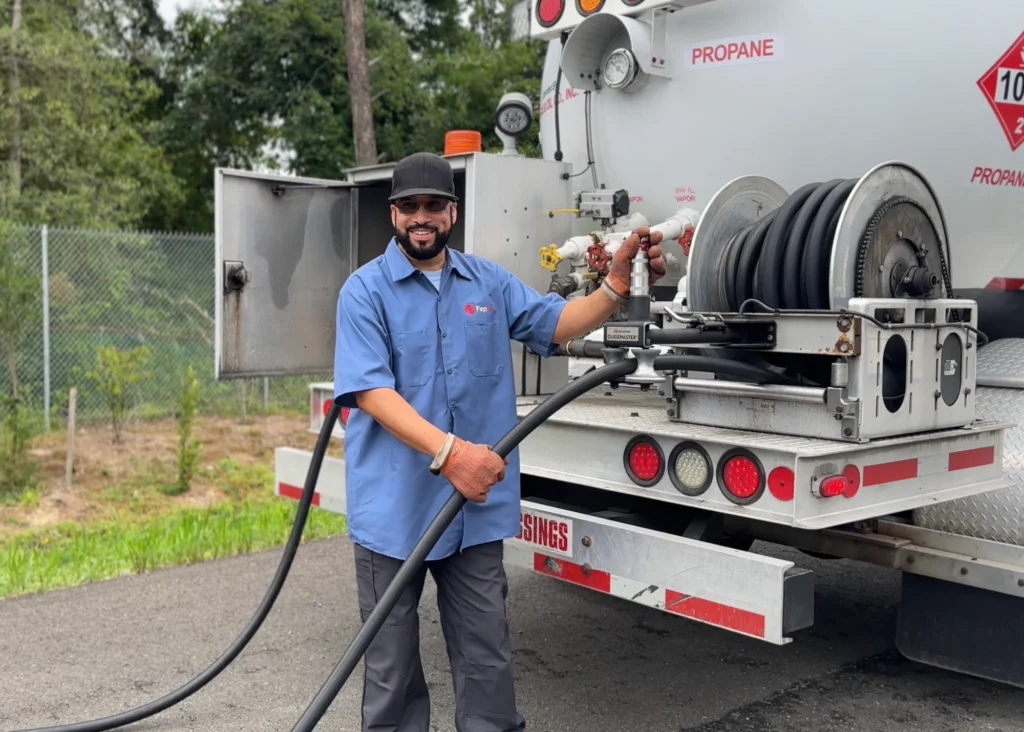
Meet Contributor and PepUp Delivery Driver, Randy Pendleton
Long-time Annapolis Propane customers in the Glen Burnie District have told us how happy they are to see their favorite driver of nearly a decade continue delivering their home propane with PepUp. Randy knows his customers by name, and he’s always willing to answer questions if you have them. Give him a wave if you see him delivering propane near you!

